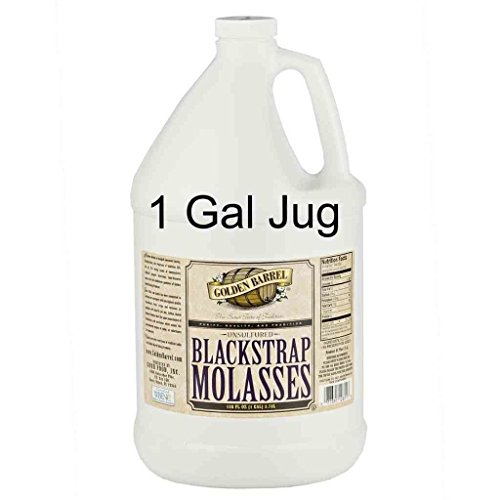How to Choose the Molasses
Molasses: What You Need To Know

- 1. Molasses: What You Need To Know
- 1.1. What Is Molasses?
- 1.2. Types Of Molasses
- 1.2.1. Light Molasses
- 1.2.2. Dark Molasses
- 1.2.3. Blackstrap Molasses
- 1.2.4. Unsulfured and Sulfured Molasses
- 1.3. Nutrition
- 1.4. Potential benefits
- 1.4.1. Bone Health
- 1.4.2. Heart Health
- 1.4.3. Blood Sugar
- 1.4.4. Antioxidants
- 1.5. Culinary Uses
- 1.6. How To Select And Store Molasses
- 1.6.1. Selecting Molasses
- 1.6.2. Storing Molasses
- 1.7. Conclusion
Molasses, a thick, dark, and sweet substance produced during the sugar refining process, has played a crucial role in human culinary traditions for many centuries. This adaptable syrup is obtained through extracting sugar from sugarcane or sugar beets, offering a unique flavor that enhances the complexity and indulgence of various dishes. Join us as we explore the captivating history, manufacturing methods, nutritional advantages, and versatile uses of molasses.
What Is Molasses?
Molasses is a thick, dark syrup made during the sugar-making process. First, the sugar cane is crushed and the juice is extracted. The juice is then boiled to form sugar crystals and removed from the liquid. The thick, brown syrup left after removing the sugar from the juice is molasses. This process is repeated several times to produce a different type of molasses each time.
Unlike refined sugar, molasses contains some vitamins and minerals. One tablespoon contains almost 60 calories with 15 grams of sugar. The key nutrients found in molasses include iron, calcium, magnesium, and potassium. Black strap molasses, because it's more concentrated, will have the highest amounts.
Types Of Molasses
Molasses comes in various types distinguished by differences in color, consistency, flavor, and sugar content.
Light Molasses
This syrup is a result of the initial boiling and boasts the lightest color along with the sweetest taste, making it a popular choice for baking purposes.
Dark Molasses
Formed through the second boiling, dark molasses is thicker, darker, and less sweet. While suitable for baking, it imparts a distinct color and flavor to foods.
Blackstrap Molasses
Resulting from the third boiling, blackstrap molasses stands out as the thickest and darkest variety, often carrying a bitter taste. Despite its intensity, it is the most concentrated form, rich in vitamins and minerals, leading some to assert that it offers the most health benefits.
Unsulfured and Sulfured Molasses
Molasses labeled as "sulfured" contains added sulfur dioxide, functioning as a preservative to prevent spoilage. Sulfured variants generally exhibit a less sweet profile compared to other types.
Nutrition
Unlike refined sugar, molasses contains various vitamins and minerals. A single tablespoon, equivalent to 20 grams (g) of molasses, provides the following percentages of daily nutrient values:
- Manganese: 13%
- Magnesium: 12%
- Copper: 11%
- Vitamin B-6: 8%
- Selenium: 6%
- Potassium: 6%
- Iron: 5%
- Calcium: 3%
While one tablespoon also contributes approximately 58 calories, derived entirely from carbohydrates, primarily in the form of sugar.
Despite its nutrient content, it's essential to note that molasses is notably high in sugar. Excessive sugar consumption can have adverse effects on health, contributing to major issues such as obesity, type 2 diabetes, and heart disease.
Registered dietitian nutritionists advise against relying on molasses as a source of nutrients due to its elevated sugar content. They recommend obtaining these essential nutrients through the consumption of whole foods. However, if someone is determined to include sugar in their diet, molasses could be considered a relatively healthier alternative.
Potential benefits
There is limited research available regarding the health impacts of molasses; however, various studies have associated the nutrients in molasses with several health advantages.
Bone Health
Molasses contains iron, selenium, copper, and calcium, contributing to maintaining healthy bones and preventing osteoporosis. While molasses is a source of these minerals, it's advisable not to rely solely on it. Other nutrient-rich foods like nuts, seeds, and dairy products should also be included in one's diet.
Heart Health
Being a decent source of potassium, molasses supports healthy blood pressure and contributes to overall heart health. Although human studies on molasses' effects on the heart are lacking, a 2005 study in rats suggested that supplementing the diet with molasses could increase levels of HDL cholesterol, which is associated with heart disease and stroke prevention. However, more research is needed to confirm these benefits in humans.
Blood Sugar
Individuals with poor blood sugar control, including those on a high-carb diet, should limit their sugar intake, including molasses. However, a 2016 study found that consuming molasses with carbohydrate-containing foods led to lower blood sugar and insulin levels compared to consuming these foods alone. It's important to note that molasses has a similar glycemic index to refined sugar, which measures how quickly foods raise blood sugar levels.
Antioxidants
Research suggests that molasses may have a higher antioxidant effect compared to sugarcane juice. A 2020 study indicated that sugarcane molasses could be a potential source of polyphenols, which are natural plant chemicals acting as antioxidants. Antioxidants, as shown in an older 2012 study, play a role in protecting cells from oxidative stress associated with diseases like cancer.
Culinary Uses
Molasses has made its way into kitchens worldwide, imparting richness and intricacy to both sweet and savory culinary creations. Below are some widely embraced applications of this versatile ingredient:
- Baking: Molasses plays a pivotal role in various baked delights such as gingerbread, molasses cookies, and bran muffins. Its luscious, caramel-esque flavor not only elevates the taste but also contributes to the moist texture of these treats.
- Marinades and Glazes: The faintly bitter undertones of molasses make it a stellar addition to meat marinades, especially for pork and chicken. Additionally, it serves admirably as a glaze for roasted vegetables, introducing a delightful interplay of sweet and savory notes.
- Beverages: Molasses assumes a fundamental position in the crafting of traditional beverages. It is an essential element in rum production and doubles as a sweetener for drinks like hot toddies or spiced cocktails.
- Sauces and Condiments: Molasses takes center stage in barbecue sauce, imparting a luxurious and intricate sweetness. It also proves useful in augmenting the flavor profile of homemade ketchup or baked beans.
- Health Tonics: Some individuals integrate molasses into their diets as a natural sweetener believed to offer potential health benefits. Thanks to its iron content, it is thought to aid in alleviating symptoms of anemia.
How To Select And Store Molasses
Selecting and storing molasses properly is essential to maintain its quality and prevent spoilage. Molasses is a thick, dark syrup that is a byproduct of the sugar refining process. Here are some guidelines on how to select and store molasses:
Selecting Molasses
- Check the Label: Look for 100% pure molasses without additives or preservatives. Some molasses products may have sulfur dioxide added as a preservative, but many people prefer unsulfured molasses for its milder flavor.
- Grade of Molasses: Molasses comes in different grades, such as light, dark, and blackstrap. The choice depends on your taste preferences and the recipe. Light molasses has a milder flavor, while blackstrap has a stronger taste.
- Organic Options: Consider choosing organic molasses if you prefer products free from synthetic pesticides and fertilizers.
Storing Molasses
- Container: Store molasses in a tightly sealed, airtight container to prevent air and moisture from affecting its consistency and taste.
- Cool and Dark Place: Keep molasses in a cool, dark place, away from direct sunlight and heat. Exposure to heat can cause molasses to crystallize or lose its quality.
- Avoid Refrigeration: While molasses can be stored in the refrigerator, it tends to become thicker and more difficult to pour. It's generally better to store molasses at room temperature.
Conclusion
With a rich history spanning centuries, diverse applications, and recognized nutritional benefits, molasses stands as a culinary essential across the globe. From its origins in ancient sugar production to its contemporary role in enhancing both sweet and savory dishes, molasses consistently contributes a layer of sweetness and complexity to the world of cuisine. Whether used in baking, creating savory glazes, or featured in classic rum cocktails, molasses serves as a testament to the enduring journey of human ingenuity and gastronomy.











